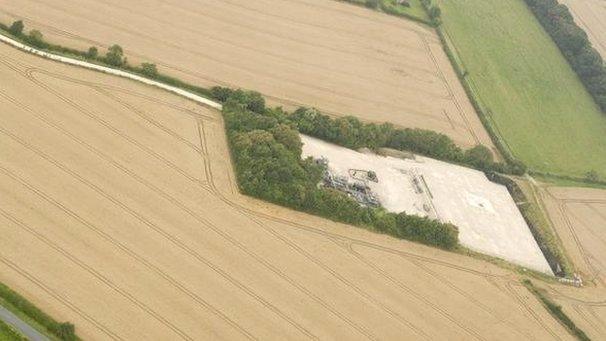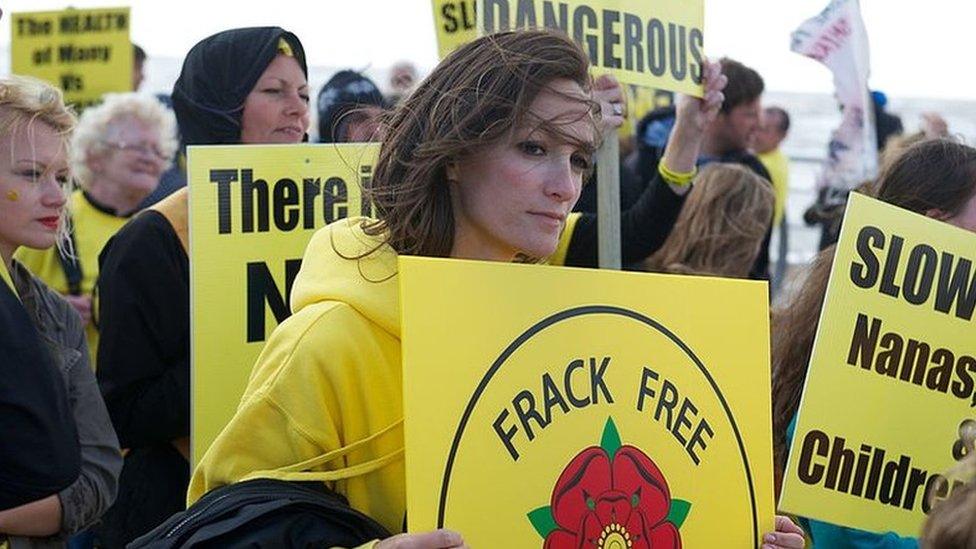Fracking decision in North Yorkshire reignites intense debate
- Published
- comments
Moment fracking application granted. Vote footage from North Yorkshire County Council
Approval for fracking in North Yorkshire has raised the prospect of the controversial technique being allowed at other sites and restarted an intense debate.
Councillors in North Yorkshire on Monday voted to allow fracking near the village of Kirby Misperton.
The decision, greeted by jeers, has been called a "victory for pragmatism" by those in favour.
It is the first application approved since 2011.
Fracking is a way of extracting oil or gas from rocks by pumping liquid into them at high pressure.
New licences for the technique, seen by the government as crucial for future energy needs, had been stalled since 2011 after tests on the Fylde coast, in Lancashire, were found to have been the probable cause of minor earthquakes in the area.
Two applications to frack at Roseacre Wood and Little Plumpton in Lancashire were rejected by councillors and are now the subject of appeals.
The county council rejected both planning applications last year on the grounds of noise and traffic impact.
Is your power supply about to run out?
Other areas of concern for those opposed include fears that the technique can contaminate the water supply.
The application to drill was granted to the UK firm Third Energy to frack for shale gas at an existing drilling site using an existing two-mile deep well - called KM8 - drilled in 2013.
Chief executive Rasik Valand said the company now had a "huge responsibility" to deliver on its commitment "to undertake this operation safely and without impacting on the local environment."
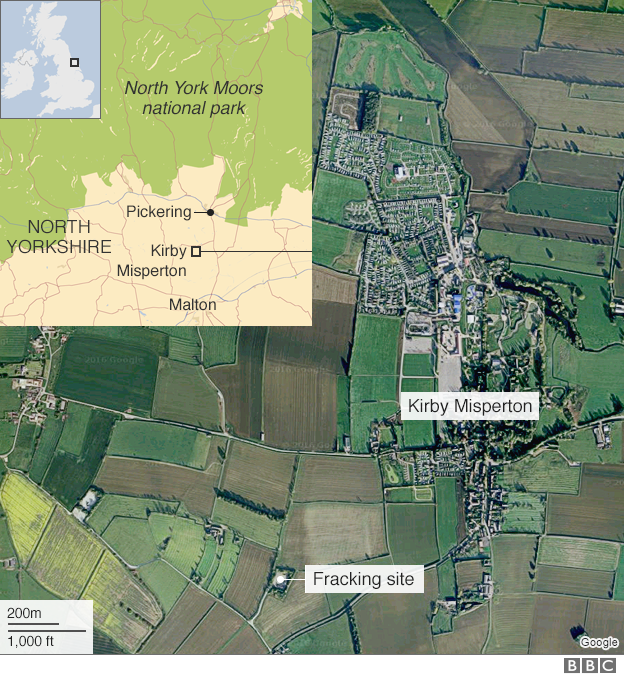
Hundreds of protesters attended a meeting in Northallerton to voice anger at the project, which had been recommended for approval.
The council's planning committee voted seven to four in favour. Anti-fracking campaigners are now considering a possible legal challenge.
As it happened: Fracking decision meeting
A number of objections from people opposed to the plans were heard over the course of two days prior to the decision.
Supporters including landowners, farmers and Third Energy employees also had their say.
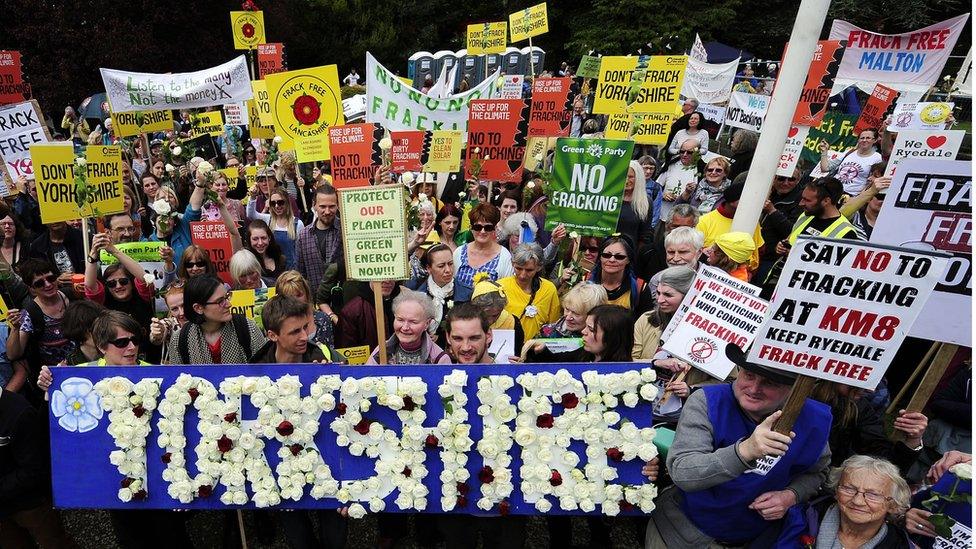
Crowds of protesters gathered outside the meeting to voice their opposition to the plans
Campaign group Frack Off has warned the plans could pave the way for thousands of fracking wells to spread across Yorkshire and many other parts of the country.
Industry body UK Onshore Oil and Gas said it was an important first step for frackers, an industry which attracts fierce local opposition whenever a site is chosen for fracking but which has strong government backing.
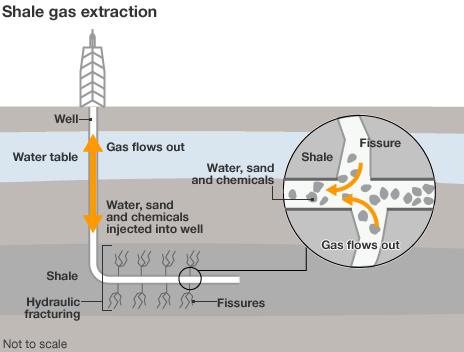
The government has said it is going "all out for shale" to boost energy security and the economy.
The BBC's David Shukman explains how fracking works
Professor Paul Ekins, professor of resources and environmental policy at University College London, told BBC Radio 4's Today programme, the decision was a "political watershed".
He said there were still planning conditions that the company would have to comply with, so fracking at the site would not start immediately.

Analysis, John Moylan, industry correspondent
While campaigners fear this decision will open up fracking elsewhere in England it's not clear that it sets a legal precedent.
Planning applications have to be decided upon their individual merits.
Cuadrilla's plans for Lancashire, which were rejected by councillors, involve months of drilling and fracking at two green field sites.
But this plan involves an existing well, so no drilling is required. The entire operation will be over in eight weeks. The site has also been producing gas since the 1990's. Overall there was less to object to.
But local councillors facing these decisions in future will be able to say they didn't kick-start fracking, they can point to the Conservative majority led planning committee in North Yorkshire.

Opponents are exploring whether or not the move can be blocked.
Friends of the Earth called the decision a "travesty" and will see if the move can be challenged.
The BBC's John Moylan explains what the fracking vote means for Kirby Misperton - in 20 seconds
Greenpeace accused the government of having a "pro-fracking bias", which they said made the outcome inevitable.
Craig Bennett chief executive of Friends of the Earth told the Today programme: "In 2016 we should not be building new oil and gas structures, we should be moving away from oil and gas as fast as possible."
Ken Cronin chief executive of UK Onshore Oil and Gas said it was the right thing to move towards renewable energy but it could not happen overnight. He also said that whatever the type of energy the country attempted to produce there were local planning objectors: "The situation is that in the UK we have a problem whether it's wind or shale. Getting through the planning system involves a number of objectors."
- Published24 May 2016
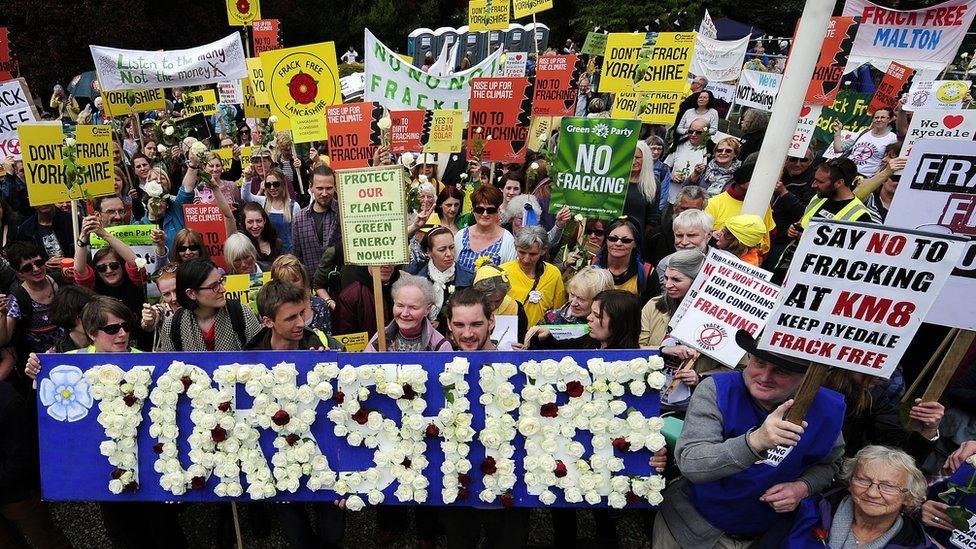
- Published23 May 2016
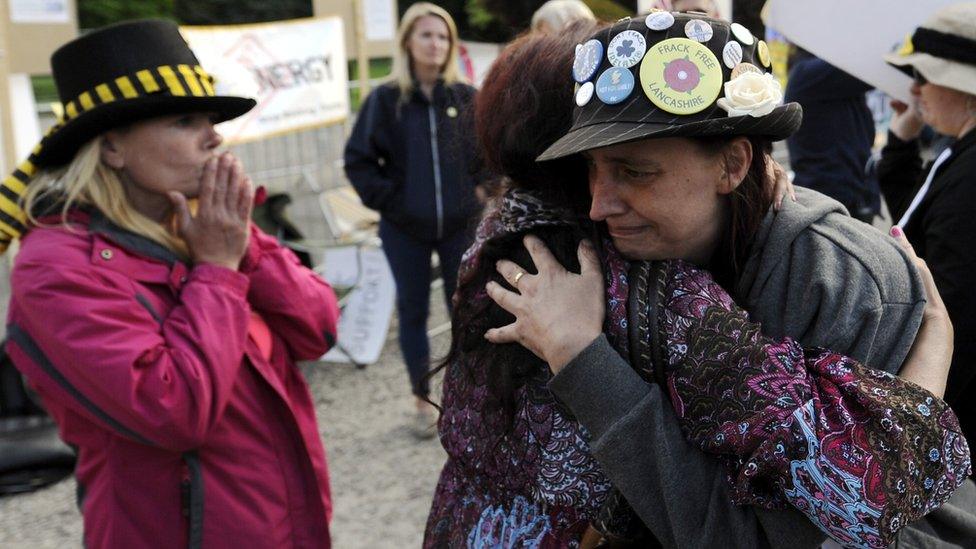
- Published20 May 2016
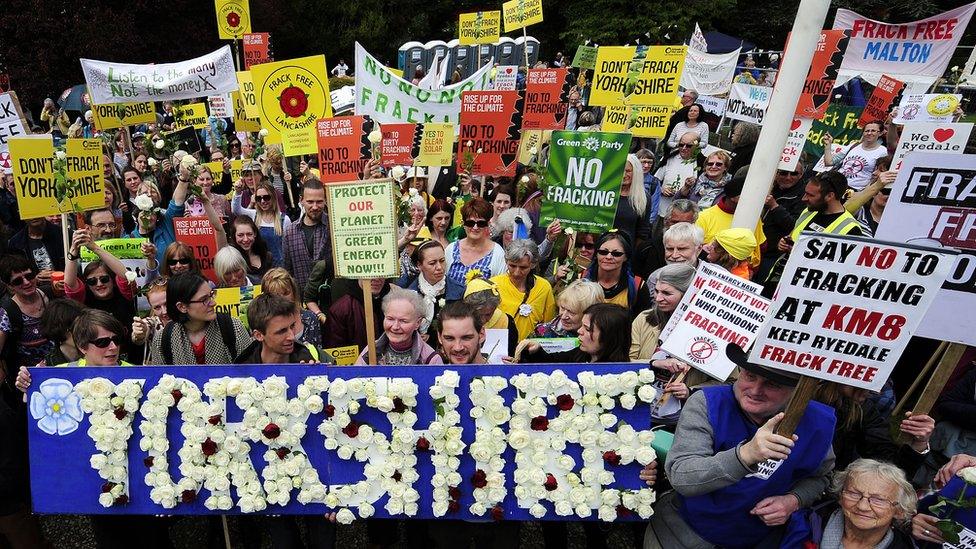
- Published20 May 2016
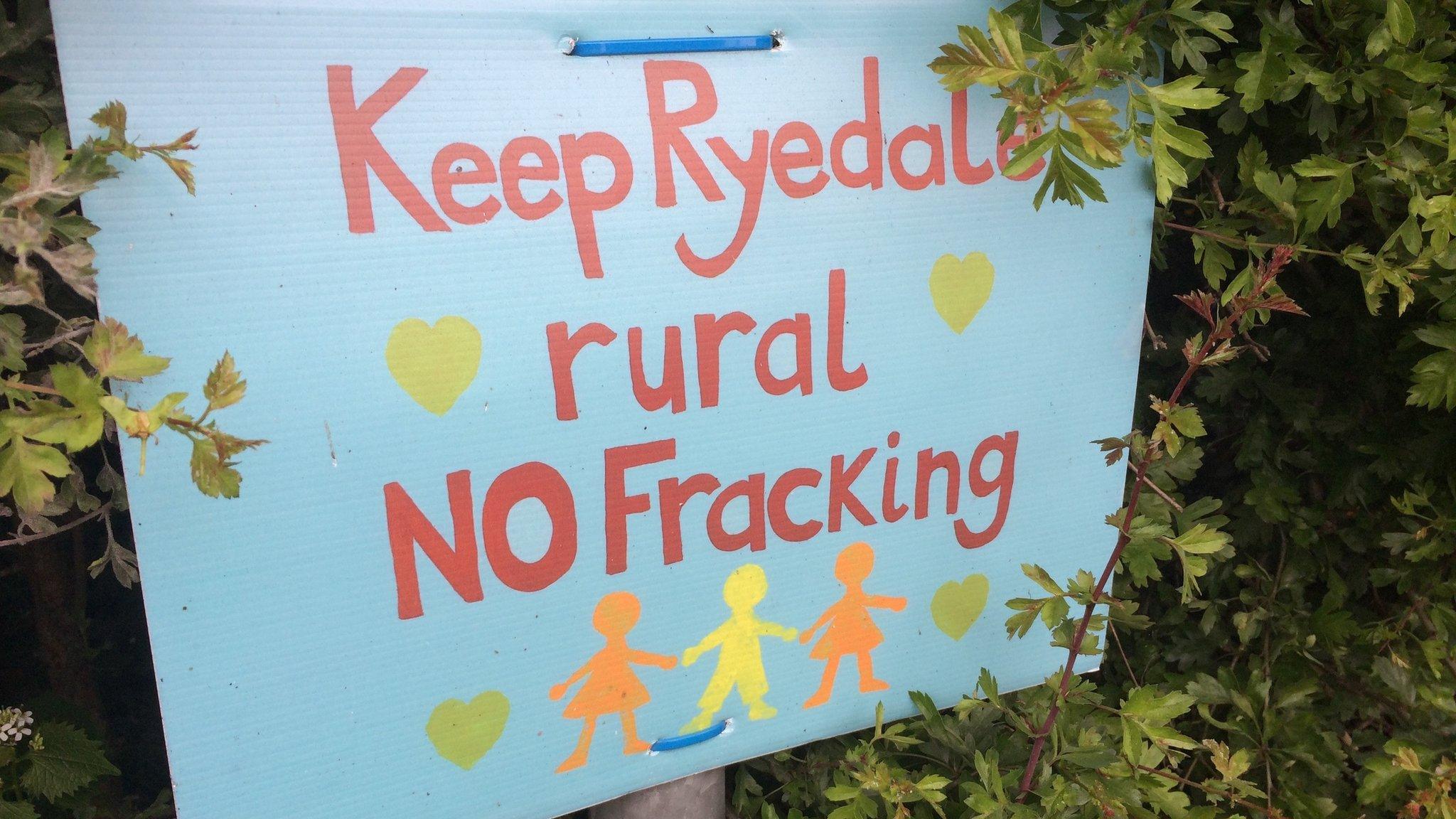
- Published13 May 2016
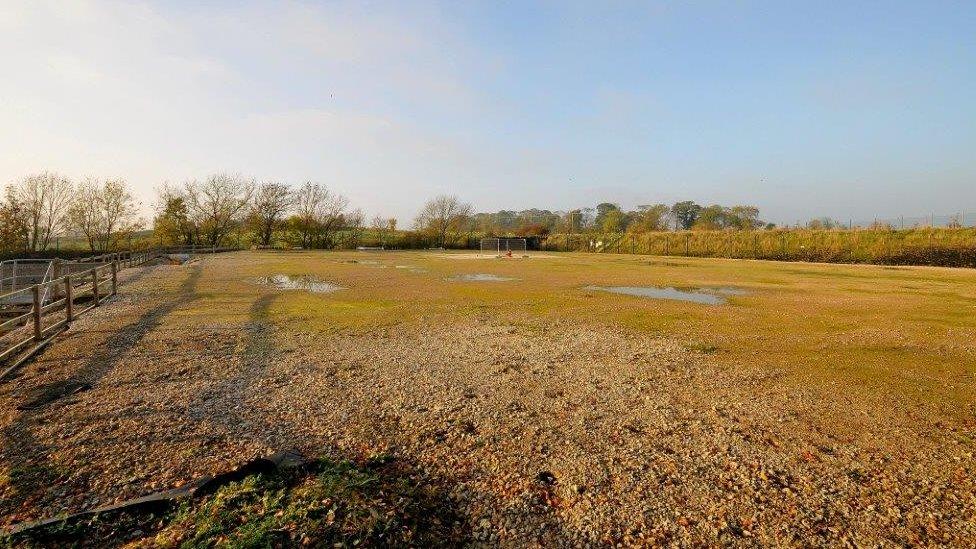
- Published22 May 2015
